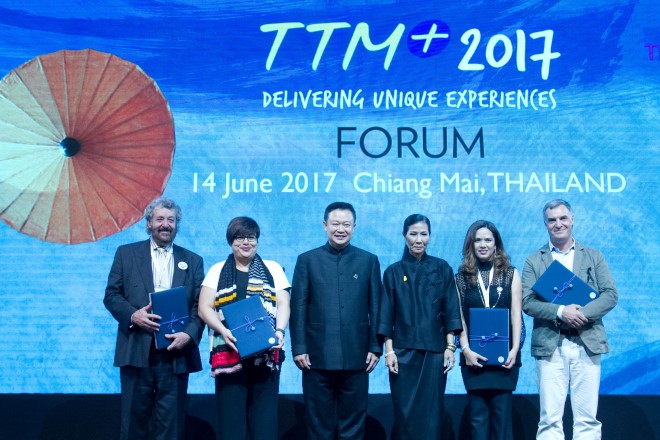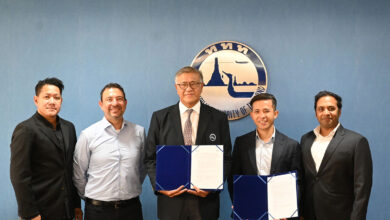Chiang Mai, 14 June, 2017 – Thailand is set to expand the number of villages qualified to become part of a nationwide community-based tourism network as part of the strategy to ensure better distribution of income, H.E. Mrs. Kobkarn Wattanavrangkul, Minister of Tourism and Sport said today.
Speaking at the 16th Thailand Travel Mart Plus Amazing Gateway to the Greater Mekong Subregion (TTM+) 2017, the Minister said that the country had 264 community-based tourism projects now and would be adding another 99 in the course of the next year.
She said this was a critical component of the national tourism strategy which is shifting entirely towards enhancing visitor expenditure and average length of stay rather than being measured by visitor head-count.
The minister said Thailand’s community-based tourism villages were where visitors could get a truly unique experience, come away with a better understanding of the country’s culture and heritage, improve their own work-life balance and also help narrow the rich-poor income gap.
The bottom line, she said, was that community-based tourism could enhance friendship, understanding and unity between peoples, which is the core purpose of all of us in the industry.
The minister was speaking at the Tourism Trend Talk Forum, a special event organised right after the opening ceremony of the Thailand Travel Mart 2017 to help buyers, sellers, media and other participants get a quick update on some of the key trends in Thai and regional travel.
Other speakers included Mr. Mason Florence, Chairman of the World’s 50 Best Restaurant Academy on Gastronomy; Professor David Beirman (Ph.D.), Senior Lecturer University of NSW, Australia, on Tourism Crisis Management; and Ms. Sarah Mathews, Head of Destination Marketing Asia Pacific (APAC), TripAdvisor, on Digital Age: E-Commerce Platform.
Mr. Florence provided some background on the Asia’s 50 best restaurants guide and the selection process. Citing the example of India, German and Turkish chefs who had developed great restaurants after setting them up in Bangkok, he said the Thai capital is offers an “open-minded experimental ground for chefs to work their magic.”
He said the Michelin guide coming to Thailand later this year would go long way towards increasing the culinary appeal of Thailand and its reputation as place for great food experiences, ranging from fine dining to street food. He also cited visits to Thailand by famous chefs from Australia and Spain who had enjoyed learning more about Thai culinary ingredients and herbs in an era of growing consciousness of health food.
Prof Beirman praised Thailand as one of the most crisis-resilient countries in the world and one of the best responders to crisis. He said that safety and security concerns are becoming priority and cited the importance of companies and countries to do safety audits.
“How others see us is very important to our reputations. Once people chose destinations because it was good value for money or its beautiful images. But now, the safety factor is becoming most important.”
He also hailed Thailand for its involvement with PATA’s crisis management team and excellent media management and stakeholder relations. It was also incumbent upon destinations to provide visitors with safety tips, Prof Beirman said.
Ms. Mathews outlined how technology had changed the travel decision making process, and made it easier to find information and share experiences. It had also become an enormous source of travel research.
She said travellers first search for special stories and experiences, and then start looking of hotels and other services.
Research on the travel habits of the more than 300 million monthly visitors to TripAdvisor website had shown that culture, costs and climate are key draws when choosing a destination.
“The advantage of data is that everything is measurable. Businesses can also interact and talk to their customers about their preferences and requirements,” she said.
See a gallery of photos, click here.






